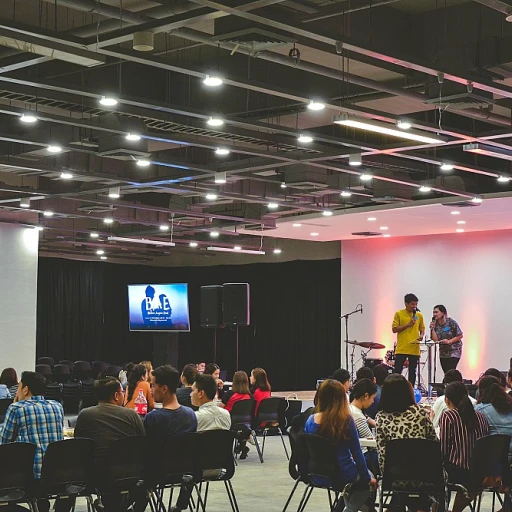Understanding the Importance of Arabic Language Translation
With globalization ever on the rise, the importance of understanding multiple languages has skyrocketed. Among the various languages making waves, Arabic stands out due to its profound cultural, economic, and geopolitical relevance. Learning Arabic opens doors not only to a rich variety of cultures but also to numerous professional opportunities across different sectors.
Why Arabic Language Matters
The language is widely spoken by millions of people around the world. It is not just a language for religious or historical purposes; Arabic is a significant player in global communication. Professionals who are fluent in both Arabic and English are increasingly sought-after for roles in diplomacy, international business, and cultural exchanges. This demand makes engaging in a translation course a strategic move for those seeking to enhance their skill set.
Translation and Interpreting: Bridging Cultures
Engaging in translation and interpreting not only enhances language proficiency but also cultivates a deeper understanding of cultural nuances. Programs offering arabic english translation, english arabic translation, and even language-specific courses like French translation and Spanish translation, provide a comprehensive learning experience that extends beyond basic language skills. These programs often include specialized content, such as medical interpreter and simultaneous interpreting courses, ensuring that students are prepared for the multifaceted nature of translation.
The Growing Demand for Professional Translators
As the demand for translation professionals continues to grow, institutions worldwide are offering training programs designed to develop these crucial skills. Ranging from basic to advanced translation, these programs cater to different proficiency levels and career goals. Whether on-campus or online, these courses provide flexible options for those looking to balance work or other responsibilities while advancing their technical skills.
For a detailed course list and further insights into why enrolling in an Arabic language translation program could be a transformative step, consider exploring additional resources that evaluate the benefits and structure of such training programs.
Benefits of Enrolling in an Arabic Language Translation Training Program
Advantages of Pursuing an Arabic Translation Course
Enrolling in an Arabic language translation program brings a plethora of benefits to aspiring professionals and students alike. Here’s why opting for such a program can be a game-changer for your career in translation or interpreting:
- Language Proficiency: A structured course enhances your proficiency in both Arabic and English, crucial for translating complex texts and ensuring accurate communication.
- Professional Certification: Completing a recognized training program often results in certification, signaling to potential employers that you have the skills and knowledge required for professional translation or interpretation jobs.
- Comprehensive Curriculum: These programs often cover a range of topics including simultaneous interpreting, arabic english translation, medical interpreting, and even touch upon language-specific nuances like french or spanish translations.
- Flexible Learning Options: Many courses are available online or on campus, providing flexibility to balance other commitments while acquiring new skills.
- Practical Experience: Hands-on practice is a core component of most programs, allowing students to engage in exercises that simulate real-world translation and interpreting scenarios.
- Advanced Knowledge: For those already in the field, there are advanced translation and interpreter training courses that deepen existing skills and knowledge.
- Career Advancement: Equipped with a certificate and skills in specific translation services (e.g., spanish, chinese, japanese), you'll have numerous avenues for career progression in various sectors including healthcare, business, legal, and more.
Overall, an Arabic translation training can be a stepping stone to becoming a skilled translation professional capable of handling diverse linguistic challenges. This ultimately opens up a wider range of job opportunities and niche areas such as medical interpretation or specific language pair expertise like english arabic.
Key Components of a Comprehensive Training Program
Vital Elements of Effective Translation Courses
For aspiring translators and interpreters, a well-rounded training program is crucial to mastering the art of Arabic language translation. A comprehensive course can help bridge the gap between theoretical understanding and practical application. Here’s what to look for in an impactful training program:- Core Curriculum Content: A robust Arabic translation course should cover diverse aspects of translation and interpreting, encompassing both the Arabic and English languages. This ensures that students not only grasp language basics but are also prepared for challenges specific to Arabic English translation.
- Practical Training Sessions: Hands-on practice is imperative. High-quality courses incorporate extensive translation and simultaneous interpreting sessions, enabling students to gain confidence. Someone interested in becoming a professional translator must engage in practical exercises, which might include medical interpreter simulations or mock translation projects.
- Advanced Modules: For a more in-depth understanding, some advanced translation programs offer modules in specialized fields such as Spanish translation, French translation, Chinese translation, or even Japanese translation. These may include specific translation interpreting courses that expand linguistic range and adaptability.
- Certification and Professional Development: Completion should ideally result in a recognized certification. This not only enhances a resume but also evokes trust in professional settings. Programs associated with a university or offering an official certificate are often more credible and benefit career advancement.
- Flexible Learning Options: Many programs now provide both online and on-campus options, catering to students' varied lifestyle and learning preferences. This flexibility allows individuals to pursue interpreter training without sacrificing current professional duties.
Challenges in Arabic Language Translation
Overcoming Hurdles in Arabic Language Translation
Engaging in Arabic language translation and interpreting can be a challenging yet rewarding endeavor. Students and professionals alike face several obstacles that require dedication and practice to overcome. Here, we explore some of the main challenges encountered in this field.
- Complexity of the Arabic Language: Arabic is a rich and intricate language with various dialects, making translation and interpreting tasks complex. Unlike English or French translation, Arabic requires a deep understanding of its grammar, syntax, and cultural nuances.
- Dialect Variations: The Arabic language has numerous dialects, each with its own unique expressions and vocabulary. Translation professionals must be adept at navigating these variations to ensure accurate and effective communication.
- Technical and Specialized Vocabulary: Advanced translation, such as medical interpreter or simultaneous interpreting, demands proficiency in specific terminology. This requires continuous learning and exposure to specialized courses and training programs.
- Maintaining Cultural Sensitivity: Translators must be culturally aware to avoid misinterpretations. Understanding cultural contexts is crucial in producing translations that are not only accurate but also respectful and relevant.
- Balancing Literal and Contextual Translation: A major challenge in Arabic English translation is striking the right balance between literal translation and conveying the intended message. This requires a nuanced approach, often taught in professional translation courses.
These challenges highlight the importance of enrolling in a comprehensive training program that offers a blend of theory and practical experience. Whether through online courses or campus-based programs, students can gain the skills needed to tackle these hurdles effectively, leading to successful certification and career advancement in the field of Arabic translation.
Choosing the Right Training Program for You
Identifying Your Ideal Translation Program
Choosing the right Arabic language translation training program can be pivotal in your journey to becoming a proficient translator or interpreter. With a myriad of options available, it’s essential to zero in on what aligns best with your career aspirations and personal goals.
Begin by considering the format and delivery method of the program. Whether you prefer an intense in-person course on campus or the flexibility of online learning, it's crucial to find a format that suits your lifestyle.
- Online vs. Campus: Online training can offer greater flexibility, especially if you’re balancing other commitments. On the other hand, campus-based programs might provide more direct interaction and networking opportunities.
- Certification and Accreditation: Look for programs that offer a recognized certification upon completion. Accredited courses ensure that the training meets industry standards and updates, improving your employment prospects.
- Specific Language Pair: If you aim for specialized translating or interpreting, such as medical interpreting or simultaneous interpreting, ensure the program offers targeted instruction for those areas.
- Program Content and Structure: Scrutinize the course list to ensure it covers not only basic but also advanced translation skills, including Arabic-English and English-Arabic translation strategies.
- Practical Training Opportunities: Programs that integrate practice sessions or internships can tremendously boost your practical experience, giving you a competitive edge in the job market.
Additionally, think about the professional outcomes associated with the program, such as job placement support or connections with industry professionals. This comprehensive approach ensures that your chosen training will not only equip you with the necessary skills but also lay the groundwork for a successful career in translation or interpreting.












